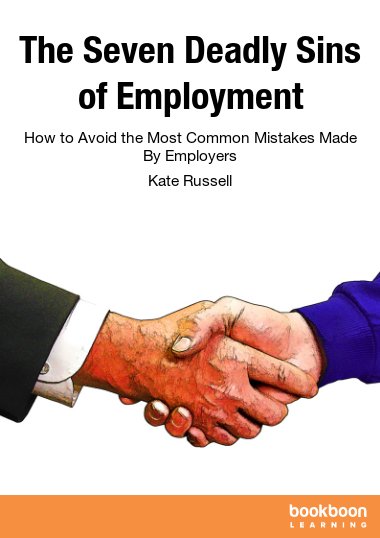This book is a useful guide for those who are new to HR or managing teams. The Seven Deadly Sins of Employment takes the reader through the employment life cycle from recruitment to termination of employment. It sets out the main processes and risks and provides practical guidance and help. Written in an easy-to-read style by an HR practitioner of considerable experience, the reader will understand what has to be done to achieve compliance, guidance on best practice as well as some robust no nonsense advice. Illustrative case studies add an amusing human dimension to the topic.


